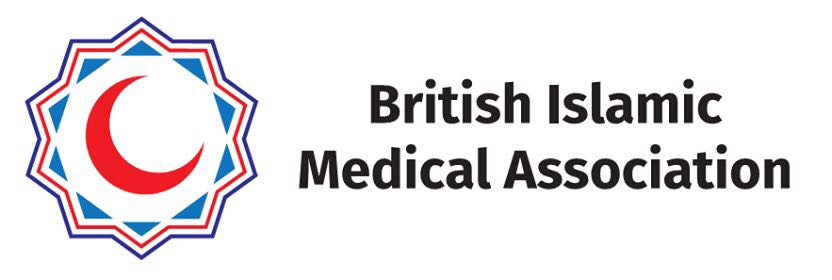BIMA Ramadan Initiative
14 May . 3 min read.

From 17th May 2018, around 2.8 million Muslims in the United Kingdom will observe the holy month of Ramadan. During the month of Ramadan; Muslims fast from dawn to dusk for approximately 18 hours per day. Muslims will refrain from consuming food, drinking fluids, smoking and engaging in sexual relations during the daylight hours.
Fasting is obligatory for every sane, healthy adult Muslims and has been proven to be beneficial [1]. Individuals suffering from an illness, elderly, pregnant, breastfeeding or menstruating are exempt from fasting. However, some Muslim patients with certain chronic disease states which are well controlled; such as diabetes, choose to participate in fasting during Ramadan.
The British Islamic Medical Association (BIMA) launched the Ramadan Initiative in 2015 with the aim of raising awareness of the importance of Ramadan to Muslim patients amongst British healthcare professionals. The programme ambition is to be an advocate for Muslim patients and healthcare professionals to improve the quality of advice being given by medical professionals to Muslim patients to safely participate in Ramadan.
Clinical studies and medical research into safe prescribing in Ramadan is scarce [2, 3]. The EPIDIAR international research study [4] concluded that patients who fast during Ramadan represent a challenge to their physicians. There is a need to provide more intensive structured education before Ramadan to reduce the incidence of adverse effects and medical emergencies in the fasting Muslim patients.
The Ramadan Initiative has worked year on year to increase awareness of the importance that fasting holds to Muslim patients amongst healthcare professionals and to educate medical colleagues on the exemptions to fasting and acceptable routes for drug administration for patients who wish to observe fasts. The movement’s ambitions are to empower medical colleagues with the knowledge to provide safe care for Muslim patients.
The underpinning purpose of the Ramadan Initiative is to address the gap in cultural/faith competence training for clinicians by piloting a new national model of medical education delivery whilst enabling Muslim patients to receive high quality and spiritually sensitive care when accessing healthcare in the United Kingdom.
The education programme has been delivered every year before the commencement of the month of Ramadan; this year over 30 national multi-disciplinary educational events have been successfully delivered nationally to GP’s, hospital teams and pharmacists. The project has had full evaluation and feedback that has shown a 50% improvement in knowledge of safe prescribing in Ramadan. This suggests that Ramadan education can improve understanding for all healthcare professionals.
This year BIMA have teamed up with the British Medical Association (BMA) and also the Royal Pharmaceutical Society (RPS) to diversify the teaching model and include face to face sessions alongside a digital webinar to reach out to a bigger audience. About 900 doctors and over 200 pharmacists have attended the three-partner events.
For more information about safe prescribing in Ramadan, please visit http://www.britishima.org or email us at ramadan@britishima.org.
By Mrs Samira Osman MPharmS PGClinDip, Pharmacist Manager in Birmingham and National Lead for BIMA Ramadan Initiative
References
1) Azizi F. Islamic fasting and health. Ann Nutr Metab 2010;56(4):273–82. doi: 10.1159/000295848
2) Mir, Ghazala and Sheikh, Aziz ”Fasting and prayer don’t concern the doctors … they don’t even know what it is’: communication, decision-making and perceived social relations of Pakistani Muslim patients with long-term illnesses’, Ethnicity & Health,,2010: DOI: 10.1080/13557851003624273
3) Al-Arouj et al. Recommendations for management of diabetes during Ramadan. Diabetes Care 2005;28:2305–11
4) Salti, I., Benard, E., Detournay, B., Bianchi-Biscay, M., Le Brigand, C., Voinet, C. et al, EPIDIAR study group. A population-based study of diabetes and its characteristics during the fasting month of Ramadan in 13 countries: results of the epidemiology of diabetes and Ramadan 1422/2001 (EPIDIAR) study. Diabetes Care. 2004;27:2306–2311